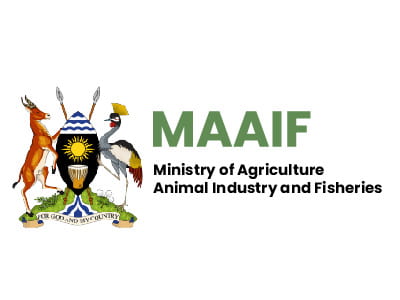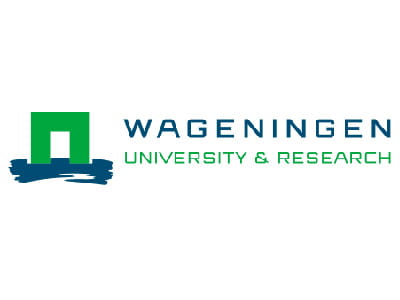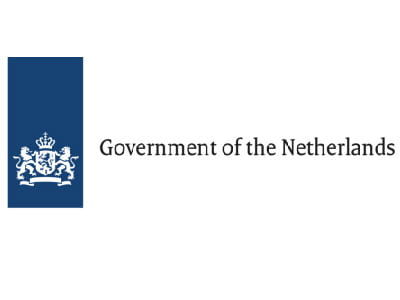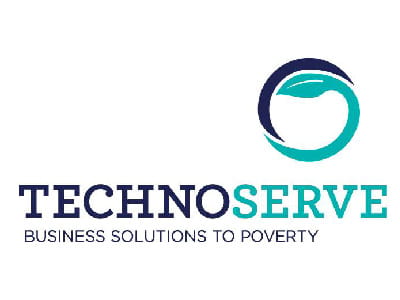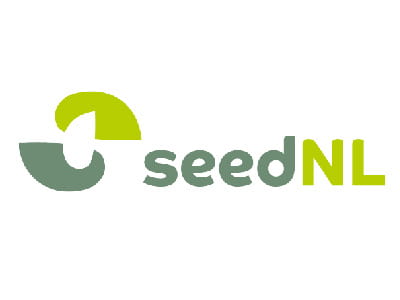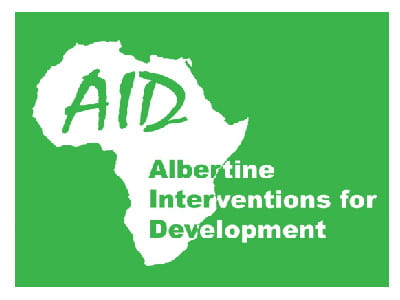Some of your Questions:
See below a couple of answers to some of the questions you might be having about ISSD Uganda's operations. Feel free to drop us an email on info@issduganda.org incase of any more questions or inquiry.
What is ISSD Uganda?
ISSD Uganda is an independent local organization dedicated to improving the agricultural sector, with a primary focus on fostering resilient seed and food systems for sustainable agricultural production. Sector transformation, capacity building and knowledge brokering, partnerships and sector coordination and support for fragile communities present the springboard for ISSD Uganda to play a catalytic role in stimulating the growth of the agricultural sector.
Are you a seed company?
ISSD Uganda is not a seed company. However, our promotion of a vibrant, pluralistic, and market-oriented seed sector helps to complement the formal seed system and supports the institutionalization of the quality-declared seed class that is suitable for less commercially profitable crops.
How do you support smallholder farmers?
ISSD Uganda builds the capacity of smallholder farmers, supports farmer institutions, and helps them access quality seeds for higher production and productivity. Farmers are trained in good agricultural practices (i.e., plant nutrition and soil health, crop protection against pests and diseases, and efficient water management).
What kinds of interventions do you implement?
ISSD Uganda conducts research in collaboration with smallholder farmers and stakeholders to develop evidence-based innovations in seed and food systems. Our methodological flexibility enables us to apply a multiplicity of intervention approaches to address the fundamental concerns in the agricultural sector, including the resilience of the seed and food systems, horizontal and vertical coordination of value chains, the evolution of inclusive enabling policy environments, uptake of digital technologies, sustainable natural resource management, and market systems development.
What is your role in the Local Seed Businesses?
The inherent problem of the seed sector in Uganda has always been the limited level of access to and use of quality seed for farmers’ preferred crop varieties. Hence, there is a large gap in the availability of quality seed for locally important self- and open-pollinated varieties (OPVs) of legumes, oil seed, cereals and roots and tubers, commonly referred to as orphaned crops. ISSD Uganda supports existing Local Seed Businesses (LSBs) that are uniquely capable of producing Quality Declared Seeds (QDS) of the mentioned less commercially profitable crops due to their local production context, scale, and proximity to the market.
How do you promote coordination in the agricultural sector?
We foster coordination between seed and commodity value chains and support linkages between seed suppliers and commodity markets. The competitive advantage of ISSD Uganda lies in its diversified partnerships with opportunities to leverage skills and competencies along the value chains of the agricultural sector. Our efforts are directed at strengthening horizontal coordination between seed and commodity value chains and have boosted linkages between commodity off-taker enterprises and farmer-led seed enterprises.
What is your involvement in policy advocacy?
The evolution of inclusive policies and regulations is required for agricultural development at all levels. ISSD Uganda supports the development of an enabling environment for equitable seed and food systems by influencing regular reviews of existing policies, laws, and regulations through strong working relationships with the statutory and regulatory bodies, and with District Local Governments to accelerate approval of regulations and promote enforcement, respectively.
Do you work on agri-food systems?
We recognise that the agri-food systems are under immense pressure to produce abundant food to feed the fast-growing population of Uganda amidst various economic, social, and environmental challenges. As such, no blanket solutions exist to strengthen agri-food system sustainability. Transformation of agri-food systems must build on science advances and emphasis on systems-based and holistic approaches to production and sharing of knowledge. The key principle of agri-food system reconfiguration is building socio-technical innovation bundles of mutually reinforcing technologies, policies, knowledge, social institutions, and cultural norms.
Do you work with farmers' organizations?
Strong markets are essential for addressing price volatility, reducing rural poverty, and ensuring access to adequate and nutritious food. ISSD Uganda is dedicated to helping farmers' organizations improve their collective marketing and strengthen market systems for smallholder farmers. Many of these organizations are poorly organized and lack the bargaining power needed to effectively engage with other actors in the agricultural value chain. This can have a positive impact on input access, production, marketing, value addition, distribution, and consumption.
Do you also engage in horticulture related work?
ISSD Uganda contributes to the horticulture subsector of Uganda by promoting access to superior vegetable seeds that are high yielding, training farmers and extension workers in good agronomic practices as well as promoting food security and nutrition by encouraging food diversity that includes vegetables and fruits. We work with diverse farmers and project partners. ISSD-Plus, NIGI and HortiMAP are among the horticulture projects we have been involved in. During the ISSD Plus project, ISSD Uganda partnered up with six Dutch seed companies namely Enza Zaden, Rijk Zwaan, Holland Greentech, Bakker Brothers, East-West Seed, and Syngenta to promote the uptake of quality vegetable seeds in Uganda.
What is the CommonGround Project?
CommonGround is a 4-year project funded by the Embassy of the Kingdom of the Netherlands in Kampala, led by Wageningen Environmental Research (WENR) and implemented by Integrated Seed and Sector Development Uganda (ISSD Uganda) in partnership with other local partners. The project goal is to build resilient farmer communities and watersheds in the highlands of Uganda, based on sustainable farming systems, restored watersheds, and improved marketing opportunities.
What is central to the CommonGround Project?
The CommonGround project considers that a paradigm change is needed towards the bottom-up sustainable development of the (smallholder) agricultural sector to restore the resilience of the Uganda highland watersheds and farming systems. A central concept in the project is resilience-based stewardship, which means that stakeholders in a landscape take responsibility for being good stewards of the land and its natural resources, realizing that this resource base is the foundation of their livelihoods. This implies empowering farmers to become self-reliant and to farm and manage the land in balance with nature.
Who are the major beneficiaries of the CommonGround Project?
The main direct target group for the CommonGround project are 150,000 smallholder farmer households in the communities wanting to change, be it illiterate subsistence smallholder farmers or bigger commercial farmers, to reach all, both as individuals and as groups, with specific attention to the inclusion of youth and women.
Where does the CommonGround Project operate?
The project is operating in three high-value conservation areas lying astride the Uganda-Rwanda Border in the south-western highlands (Kabale, Kisoro and Rubanda), the Uganda-Democratic Republic of Congo Border in the western highlands (Ntoroko and Bunyangabu) and the Uganda-Kenya border in Eastern (Bududa).
How does the CommonGround Project work?
The CommonGround project works through three pathways that are closely connected and emerge from a cross-cutting foundation that underlies all other activities: empowered farmer communities and (sub-)watershed stakeholders. The project builds empowerment through awareness raising on the concept of resilience-based stewardship, whereby the development of village visions and action plans are central in each village. These action plans relate to watershed restoration and marketing but also contain wider ambitions that the village may have.
Pathway 1: The project using the PIP (Integrated Farm Planning) approach focuses on the empowerment of farmer households to work towards establishing more resilient farming systems. Central in this pathway is the process of gender-inclusive PIP-creation (vision building, action planning) at the household level, which is followed by capacity building on integrated land and farm management, based on farmer-to-farmer transfer of knowledge to scale-out.
Pathway 2: The collective action for watershed restoration is key, building on results from Pathway 1 and the empowered communities and (sub-)watershed stakeholders. Starting in degradation hotspots, the project will work towards restoring the upstream (steepest and most erosion-prone) part of the four watersheds through concrete (sub-)watershed management plans and organised motivated local stakeholders. From the start, relevant and committed institutions and (local) authorities will be engaged in this process.
Pathway 3: Works on improved marketing opportunities for all farmers engaged in the project and the wider community. Three interrelated aspects form the basis of this pathway: improving general market access by addressing main bottlenecks, strengthening marketing opportunities of key crop commodities, and support to viable business plans for diverse local initiatives, particularly entrepreneurial groups of women and youth.
Pathway 1: The project using the PIP (Integrated Farm Planning) approach focuses on the empowerment of farmer households to work towards establishing more resilient farming systems. Central in this pathway is the process of gender-inclusive PIP-creation (vision building, action planning) at the household level, which is followed by capacity building on integrated land and farm management, based on farmer-to-farmer transfer of knowledge to scale-out.
Pathway 2: The collective action for watershed restoration is key, building on results from Pathway 1 and the empowered communities and (sub-)watershed stakeholders. Starting in degradation hotspots, the project will work towards restoring the upstream (steepest and most erosion-prone) part of the four watersheds through concrete (sub-)watershed management plans and organised motivated local stakeholders. From the start, relevant and committed institutions and (local) authorities will be engaged in this process.
Pathway 3: Works on improved marketing opportunities for all farmers engaged in the project and the wider community. Three interrelated aspects form the basis of this pathway: improving general market access by addressing main bottlenecks, strengthening marketing opportunities of key crop commodities, and support to viable business plans for diverse local initiatives, particularly entrepreneurial groups of women and youth.
What is the Core Approach of the CommonGround Project?
The Plan Intégré du Paysan (PIP) translated into English as Integrated Farm Planning (PIP) is the core strategy of the project that guides all activities at the household and community level, as well as during workshops with entrepreneurial groups, government stakeholders, and watershed management committees. It is a collaborative approach that aims to promote resilience-based stewardship by involving households in creating a vision and plans for their farm's future. The PIP approach seeks to increase farmers' motivation, resilience, and stewardship by fostering a bottom-up approach that moves away from traditional top-down intervention approaches. This approach recognizes that resilient farming systems are built on a foundation of motivated people and healthy land.
What are the key guiding principles of PIP?
Empowerment: to believe in one’s ability to change one’s reality, see the opportunities to improve, and have intrinsic motivation to undertake action
Integration: to be aware of the importance of (farm) resilience, and develop an attainable future farm vision with integrated activities
Collaboration: to exchange knowledge and learn from others to improve and carry out actions together to achieve wide-scale sustainable impact.
Integration: to be aware of the importance of (farm) resilience, and develop an attainable future farm vision with integrated activities
Collaboration: to exchange knowledge and learn from others to improve and carry out actions together to achieve wide-scale sustainable impact.
How can somebody get involved with ISSD Uganda's work?
You can get involved by exploring partnerships, volunteering, or participating in our programs and initiatives.

For More Queries:
+256(0)755 049 188
Our expert staff is standing by to answer your questions. You can also contact us by email: info@issduganda.org




